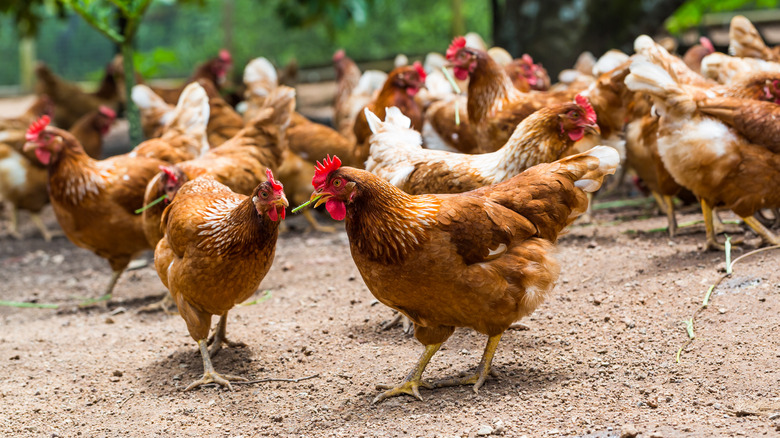How Colorado's Cage-Free Egg Law Could Impact Prices
Egg prices may be the perfect way to understand both the causes and the effects of inflation. "In the case of eggs, you have rapidly increasing market prices of corn or whatever it is that they eat, and that drives up the cost of feeding the chicken, which drives up the price of eggs, which drives up prices for American consumers," Isabella Weber, an economist at UMass Amherst told Vox. When you consider that the price of eggs also affects the prices for all the products that contain eggs, the ripples extend even further.
The Vox article was written before the widespread outbreak of avian flu that Food Safety News said led to the death of 52.7 million birds between February and December of this year. Eggs are expensive right now, according to the USDA. The Egg Markets Overview dated December 9, 2022 says, "Wholesale prices for cartoned shell eggs continue to move higher and are establishing record highs each day."
Wholesale prices for a dozen large eggs, which vary depending on where you are in the country, reached a staggering $4.30 in the Midwest, $4.86 in New York, and $5.00 in California. According to ABC Denver 7, Colorado has passed legislation requiring that all the eggs sold in the state must be from cage-free chickens, beginning with an incremental deadline of January 1, 2023. Consumers, already feeling the effects of inflation on food prices, wonder if the change will further drive up already record-high egg prices.
Cage-free eggs cost more
Will eggs in Colorado be more expensive once they're required to be cage-free? The answer is almost certainly yes. The California law requiring all eggs to be cage-free did increase the price, according to Agri-Pulse. And as Colorado joins California and Massachusetts in requiring that laying hens be kept in larger enclosures, ABC Denver 7 reports that consumers are worried about higher prices being passed along from farmers.
And there are absolutely higher prices for producing cage-free eggs, as much as 30% higher, according to Vox, though the upward trend in prices may not last forever, as farmers develop economies of scale and recoup the significant investments they must make in building new enclosures for chickens. A general manager for the egg division of an Ohio-based farm told Agri-Pulse it will take about 10 years to make back the money it's invested in cage-free enclosures.
Cage Free Laws explains that Colorado won't be the last state to require its stores to sell cage-free eggs; Rhode Island, Washington, Oregon, Nevada, Michigan, Arizona, and Utah have also set dates to implement similar requirements. While, as Vox notes, "it's pricey to be nicer to chickens," it's an investment that animal welfare advocacy groups have convinced us is the right one to make, predicting that by 2026, about 70% of laying hens will be housed in cage-free enclosures, per U.S. News & World Report.

